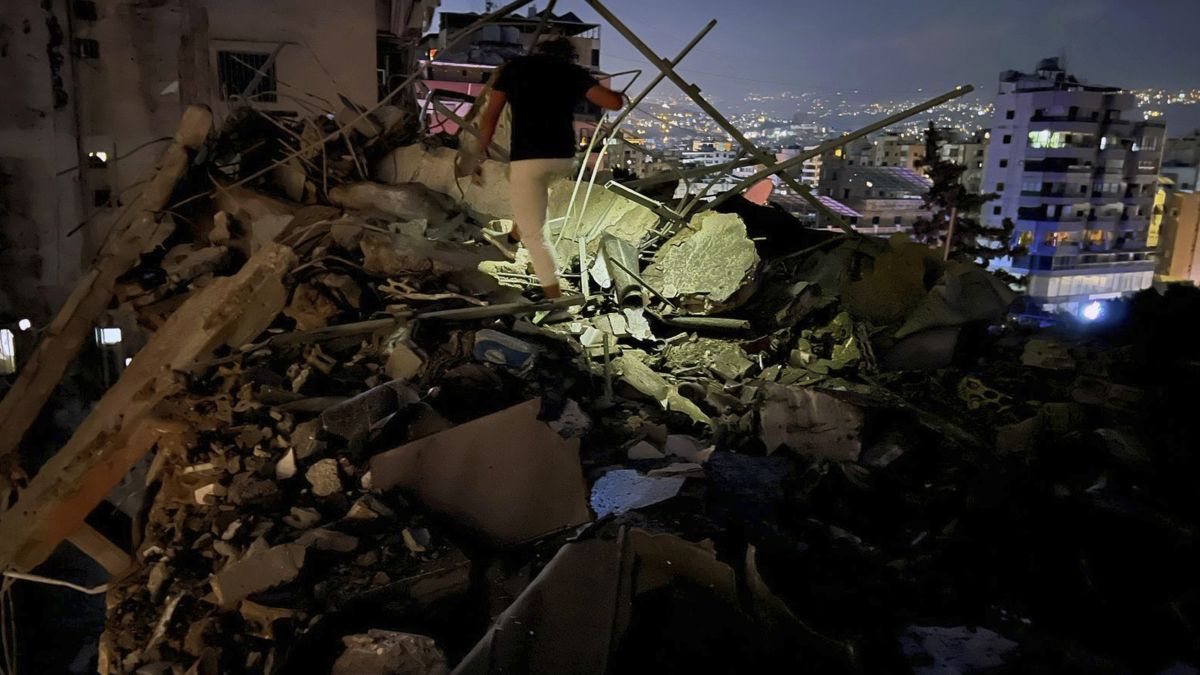Last Saturday, a football field at the Israel-occupied Golan Heights was struck by a rocket, killing 12 children. Following the attack, Israeli Prime Minister Benjamin Netanyahu pinned blame on Hezbollah for the strike and vowed that the Lebanese militant group would “pay a hefty price”.
It seems that the prime minister kept his word as on Tuesday night (July 30), the Israeli forces struck a building in southern Beirut, killing the Hezbollah terror group’s most senior military commander — Fuad Shukr, who Israel said was responsible for Saturday’s deadly rocket attack on Majdal Shams.
What do we know of the strike? And who is Fuad Shukr?
Israel’s attack in Beirut
On Tuesday night, Israel launched a deadly strike in a densely populated Beirut suburb, Dahieh, which is known to be a stronghold of Hezbollah. Residents reported hearing a loud blast followed by a plume of smoke seen rising over the neighbourhood.
The Israeli military later said that Hezbollah commander Fuad Shukr was the target of an “intelligence-based elimination” by fighter jets.
The Israel Defense Forces (IDF) claimed that Shukr “was the commander responsible for the murder of the 12 children in Majdal Shams in northern Israel on Saturday evening, as well as the killing of numerous Israelis and foreign nationals over the years.”
Photographs from the area show cars crushed and covered with rubble. The Lebanese health ministry said that three people, including two children, were killed and 74 people injured in the attack.
Impact Shorts
More ShortsReacting to the airstrike, Lebanon’s foreign minister said that it was a shock, after assurances from Israel’s allies that the country was planning a “limited response” that “would not produce a war”.
“That’s what we’re afraid of, and hopefully this will not produce a war,” Abdallah Bou Habib told The Guardian. “We did not expect to be hit in Beirut. We thought these were red lines that the Israelis would respect.”
Lebanon now plans to file a complaint with the UN Security Council and ask Hezbollah “to have a proportional retaliation”, he added. “We want this cycle of destruction of killing and death to stop.”
Lebanon’s Prime Minister Najib Mikati condemned “blatant Israeli aggression”. He described it as a “criminal act” in a “series of aggressive operations killing civilians in clear and explicit violation of international law.”
Israel’s tit for tat
Israel’s attack in Beirut is being seen as retaliation for Hezbollah’s rocket strike in the Golan Heights on Saturday. A blast hit a playing field in the town of Majdal Shams, killing 12 children and young people from the minority Druze community .
Israel blamed Hezbollah for carrying out the attack, saying it had evidence that an Iranian-made rocket had been fired from a short distance away in Lebanon. The United States also blamed Hezbollah for the attack. However, the Lebanese group denied any involvement in the strike.
Israel’s target — Fuad Shukr
According to Israel, the attack in Majdal Shams was planned by top Hezbollah commander — Fuad Shukr, who was the target of their attack in Beirut. Hezbollah hasn’t made any comment on the killing of Shukr, also known as Mohsin.
A source close to Hezbollah told AFP that Shukr “commanded military operations in southern Lebanon” where the group has been exchanging near-daily fire with Israel since war erupted in Gaza last October.
Shukr was also believed to be a close confidante of Hassan Nasrallah, the Hezbollah leader. Not much is known about the elusive commander, but his rise in the Lebanese group occurred after its top commander Imad Mughniyeh was killed in a 2008 car bombing in Damascus. At the time, Hezbollah had blamed Israel for the attack.
According to Matthew Levitt, an expert on Hezbollah at the Washington Institute for Near East Policy, Shukr was part of Hezbollah for many years, and played a key role in some of its milestones. “Hezbollah is kind of run by a committee, but Fuad Shukr is more or less first among equals,” he was quoted as telling the New York Times.
Mohanad Hage Ali, a Beirut-based fellow at the Carnegie Middle East Centre, agrees with this. In the same New York Times report, he said, “He was part of the old guard. He’s a significant figure, for sure.”
Reports state that Shukr was in charge of Hezbollah’s most advanced weaponry, including guided missiles, cruise missiles, anti-ship missiles, long-range rockets and UAVs.
He is also accused by the US of planning and staging the truck bombing of a Marine Corps barracks in Beirut that killed 241 American service members. The bombing near the Beirut International Airport on October 23, 1983, remains the deadliest single-day attack on Marines since the Battle of Iwo Jima in World War II. A near-simultaneous attack on French forces killed 58 paratroopers.
In 2015, the US Treasury Department listed him as a “specially designated national” for acting for or on behalf of Hezbollah and two years later in 2017 offered a $5 million bounty for Shukr, describing him as a “senior adviser" to Hezbollah leader Hassan Nasrallah.
Hezbollah has remained mum on the issue, neither confirming nor denying Shukr’s demise. However, some other reports claim that the around 60-year-old commander is still alive.
Future tense
Hezbollah’s decision to stay quiet on the issue has put people on tenterhooks, with many expecting that the Lebanese faction will seek revenge for this attack in south Beirut and the loss of their top commander. They have already said they will respond and their supporters will expect them to respond.
The fear is that the cycle of ever-escalating violence will become even more difficult to stop.
It is a volatile moment in the region.
With inputs from agencies


)

)
)
)
)
)
)
)
)



